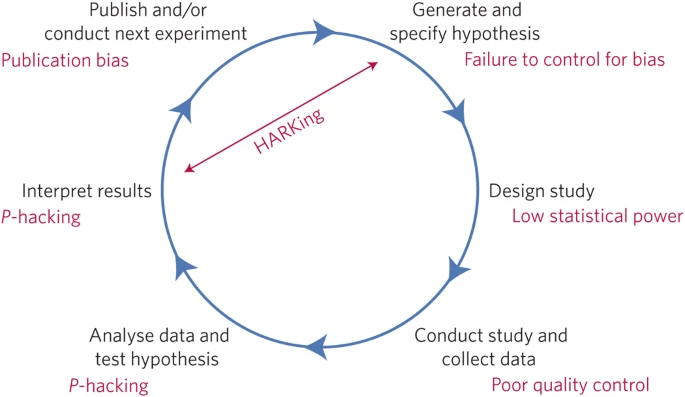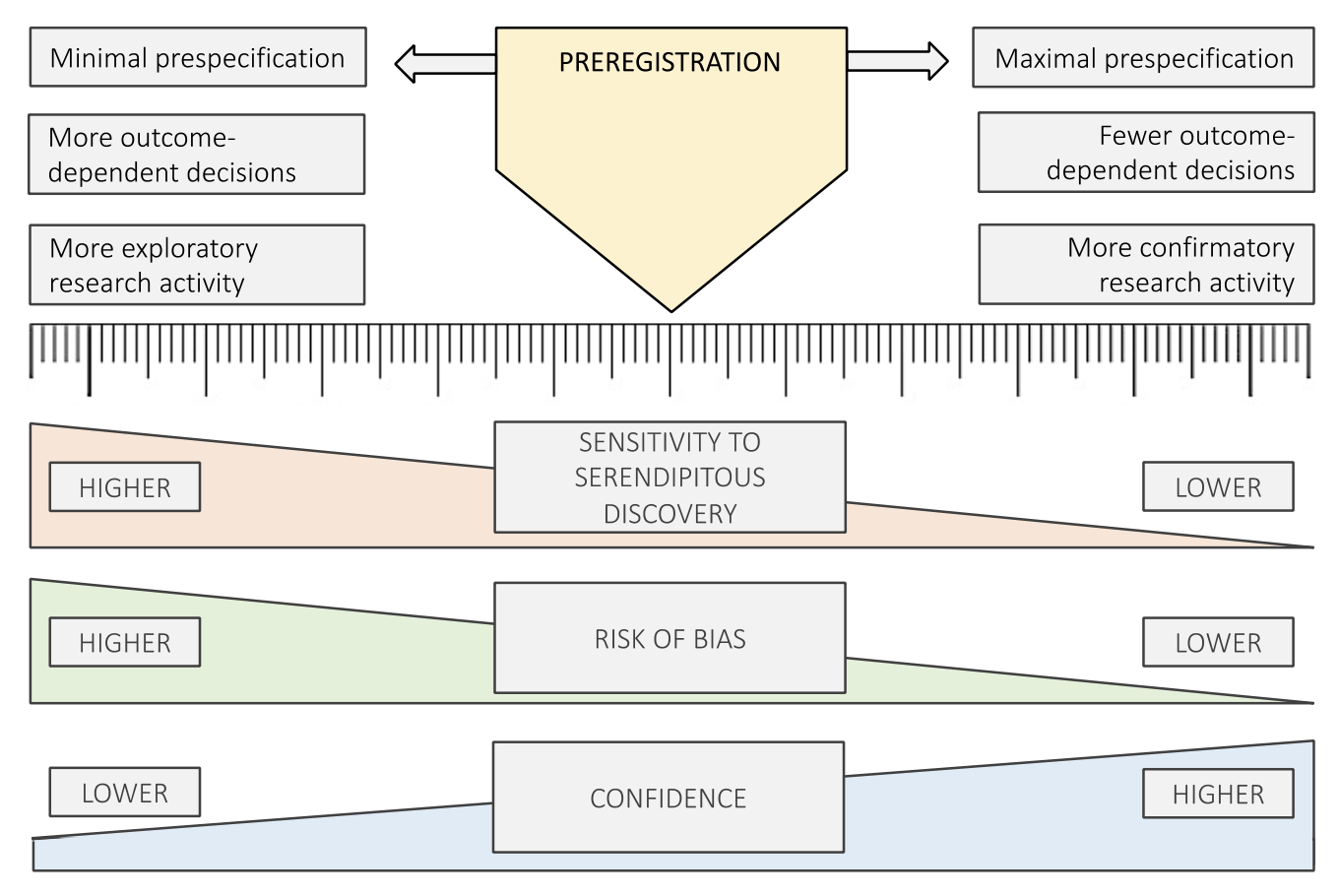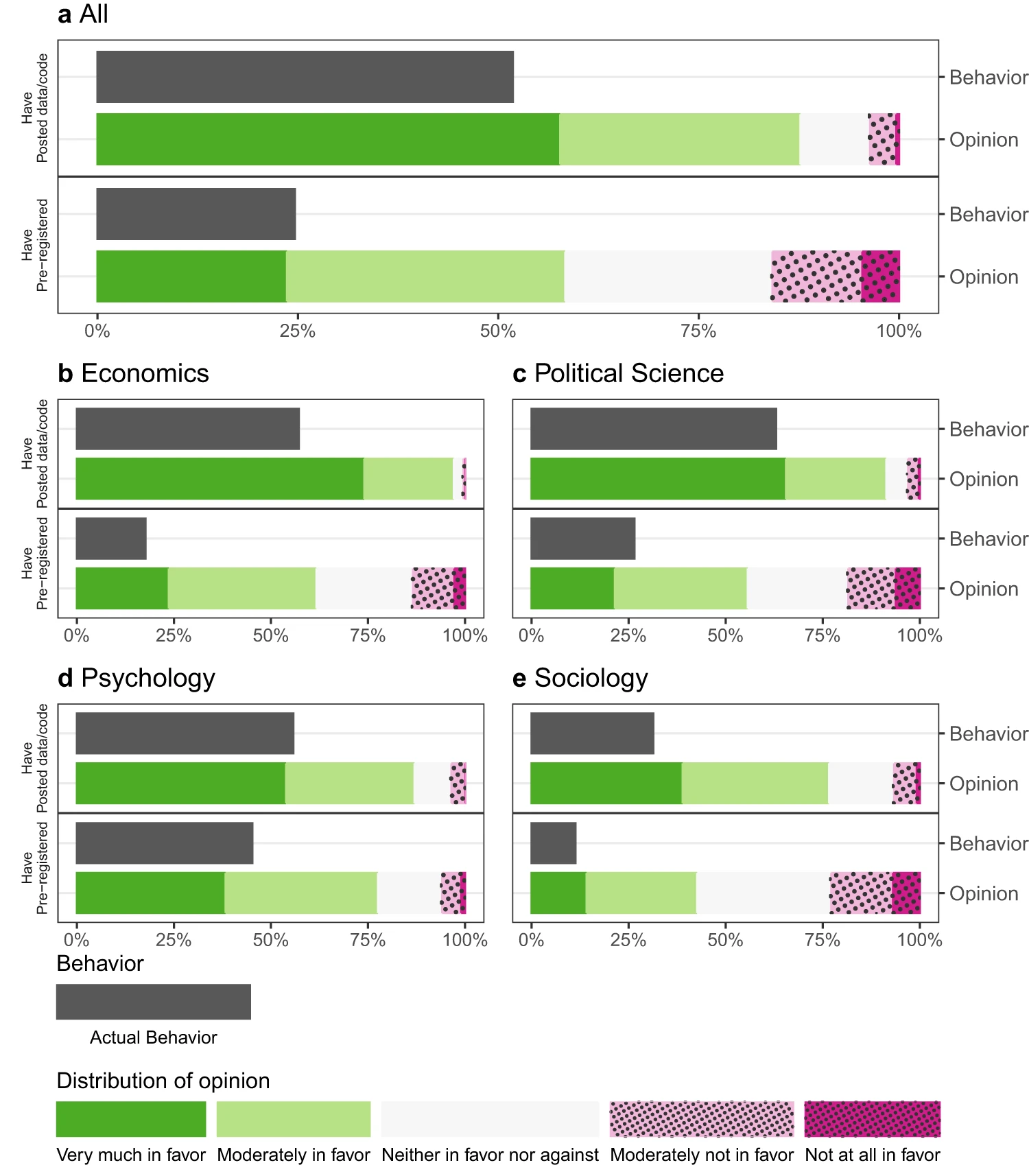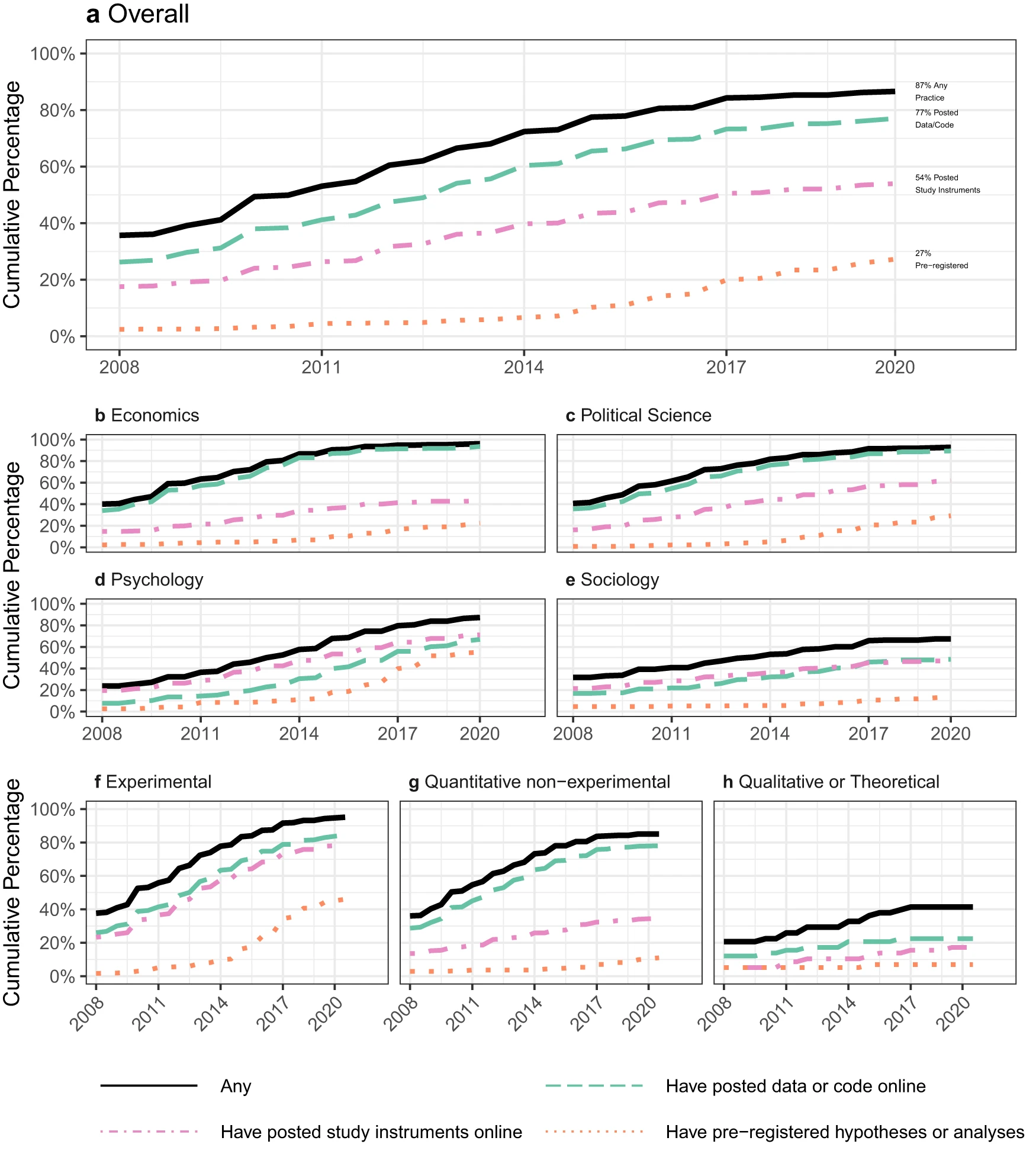Preregistration
2024-11-11 Mon
Prelude
McCutcheon (2019)
Overview
Announcement
- Clarification about “opinion piece” option for final project.
Today
Preregistration
- Read
- Explore
Preregistration
Nosek, B. A., Ebersole, C. R., DeHaven, A. C. & Mellor, D. T. (2018). The preregistration revolution. Proceedings of the National Academy of Sciences of the United States of America, 115(11), 2600–2606. https://doi.org/10.1073/pnas.1708274114
Remember HARKing?

Figure 1 from Munafò et al. (2017)
Abstract
Progress in science relies in part on generating hypotheses with existing observations and testing hypotheses with new observations. This distinction between postdiction and prediction is appreciated conceptually but is not respected in practice. Mistaking generation of postdictions with testing of predictions reduces the credibility of research findings…
Nosek et al. (2018)
However, ordinary biases in human reasoning, such as hindsight bias, make it hard to avoid this mistake. An effective solution is to define the research questions and analysis plan before observing the research outcomes—a process called preregistration…
Nosek et al. (2018)
Preregistration distinguishes analyses and outcomes that result from predictions from those that result from postdictions. A variety of practical strategies are available to make the best possible use of preregistration in circumstances that fall short of the ideal application, such as when the data are preexisting.
Nosek et al. (2018)
Services are now available for preregistration across all disciplines, facilitating a rapid increase in the practice. Widespread adoption of preregistration will increase distinctiveness between hypothesis generation and hypothesis testing and will improve the credibility of research findings.
Nosek et al. (2018)
Key ideas
- Pre-diction vs. post-diction
- Confirmatory vs. Exploratory
Types
- Preregistration (of analysis plans)
- Registered reports, Chambers (n.d.); Center for Open Science (n.d.)(https://www.cos.io/initiatives/registered-reports)

Illustration about registered reports from Center for Open Science (n.d.)
Commentary about
Exists on a continuum

Figure 2 from Hardwicke & Wagenmakers (2023)
Is it working?

Figure 1 from Claesen et al. (2021). Flowchart of assessment of preregistered studies.

Figure 2 from Claesen et al. (2021). Tile plot of the assessment of each methodological aspect per preregistration plan. Only the 27 studies that were accessible and included the minimal number of methodological details required for our adherence assessment are shown.

Figure 3 from Claesen et al. (2021). An overview of adherence per methodological aspect.
Author-reported reasons for deviations
- Suggestions from reviewers
- Did not preregister or report details because they were thought redundant or irrelevant
- Lack of consensus about what should be disclosed
- Small discrepancy with the preregistered sample size was small and not really a deviation.
Conclusions
Our work suggests that it is not obvious for preregistration to live up to its promise of making research results more transparent and more interpretable in the manuscript. This insight calls for better standards in preregistering and reporting preregistered research…
It should, however, not be misinterpreted as a plea against the practice of preregistration. Neither does our work suggest that the results of the preregistered studies we assessed should not be trusted. We do not, and cannot, claim that the observed deviations have been deliberately unreported or constitute evidence of the exploitation of researcher degrees of freedom…
The process of preregistering and reporting in accordance with the preregistration is tricky, and we realize that, given its relatively young status in psychology, the field collectively needs to go through a learning phase.
Claesen et al. (2021)
Your thoughts?
- Are you surprised that studies differ from their preregistered plans? Why or why not?
- Does preregistration make you nervous?
- How do thesis/dissertation/grant proposals differ from preregistration?
- What practice(s) would reduce deviations or alleviate skeptics’ concerns?
How popular and common?
Changes across time
My experience
- Paper: Qian, Berenbaum, & Gilmore (2022a); preregistration Qian, Berenbaum, & Gilmore (2021).
- Published R Markdown document (in HTML) with entire workflow Qian, Berenbaum, & Gilmore (2022b).
- Separate sections for preregistered and exploratory ones.
Cautionary tale

Enserink (2024)
“The concerns relate to lack of transparency and misstatement of the hypotheses and predictions the reported metastudy was designed to test; lack of preregistration for measures and analyses supporting the titular claim (against statements asserting preregistration in the published article); selection of outcome measures and analyses with knowledge of the data; and incomplete reporting of data and analyses.”
Protzko et al. (2024)
Next time
Data sharing
- Read
- Houtkoop et al. (2018)
- Tenopir et al. (2020)
- (Optional) Gilmore & Adolph (2017)
- (Optional) Meyer (2018)
- (Optional) National Institutes of Health (n.d.)
- Class notes


